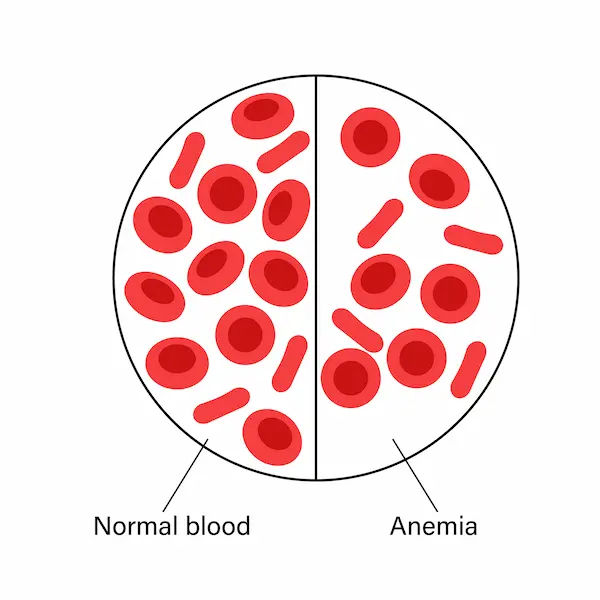Your Anaesthesiologist; The Unsung Hero of Your Surgery
Discover the vital role of your anaesthesiologist in surgery. Learn how they ensure safety, comfort, and life support before, during, and after your operation.

Written by Dr. Shaik Abdul Kalam
Reviewed by Dr. Mohammed Kamran MBBS, FIDM
Last updated on 13th Jan, 2026

Introduction
When you think about surgery, you likely picture the skilled surgeon performing the procedure. But behind every successful surgical hero is another crucial doctor ensuring the entire process is safe, pain-free, and controlled: your anaesthesiologist. This medical specialist does far more than just "put you to sleep." They are your guardian in the operating room, a highly trained physician dedicated to managing your life functions while the surgeon focuses on the repair. From the moment you enter the pre-op area until you are safely awake in recovery, your anaesthesiologist is meticulously monitoring your heartbeat, breathing, blood pressure, and brain activity, making critical adjustments every second. This guide will pull back the curtain on this vital role, helping you understand who this doctor is, what they do, and why they are your most important partner for a safe and successful surgical journey. Knowing your anaesthesiologist empowers you to ask the right questions and feel confident in the care you receive.
Who is Your Anaesthesiologist? The Perioperative Physician
Defining the Role: From Pain Management to Life Support
An anaesthesiologist is a medical doctor (MD or DO) who specialises in the comprehensive management of a patient's well-being before, during, and after surgery. The term "perioperative physician" perfectly captures their 360-degree approach. Their responsibilities are vast:
Pain Relief: Administering drugs to eliminate pain, whether for a major surgery or a minor procedure.
Sedation: Managing your level of consciousness, from fully awake to deeply asleep.
Life Support: Taking control of your breathing and circulation during critical parts of an operation, often using advanced techniques like intubation and mechanical ventilation.
Monitoring: Interpreting a vast array of data from sophisticated equipment to track your vital signs and ensure your body is handling the stress of surgery.
Medical Management: Treating any chronic conditions you have (e.g., diabetes, heart disease, asthma) as they relate to the stresses of anaesthesia and surgery.
The Long Road: Extensive Education and Training of an Anaesthesiologist Doctor
Becoming an anaesthesiologist requires one of the longest and most rigorous training paths in medicine. After completing a four-year undergraduate degree and four years of medical school, they must undertake a four-year residency programme in anaesthesiology. This involves intensive training in operating rooms, ICUs, and pain clinics. Many then complete an additional 1-2 years of fellowship training in a subspecialty like paediatric, cardiac, or neuroanaesthesia. This extensive education ensures they possess the deep knowledge of physiology, pharmacology, and procedures required to keep patients safe under extraordinary circumstances. When you meet your anaesthesiologist, you are meeting a doctor with over 12,000 to 16,000 hours of clinical training.
The Three Acts of Care: Before, During, and After Surgery
The Pre-Op Consultation: Your Strategic Planning Session
This meeting is the cornerstone of a safe anaesthetic plan. It’s not just a formality; it’s a critical diagnostic and planning session. Your anaesthesiologist will review your medical history, medications, allergies, and previous experiences with anaesthesia. They will perform a focused physical exam, often paying special attention to your airway and heart and lungs. This is your opportunity to become an active participant in your care.
Health topic carousel:
Doctor's speciality: Anesthesiology
Text: Consult a Anesthesiologist for Personalised Advice
Key Questions Your Anaesthesiologist Will Ask:
What are your past experiences with anaesthesia (for you or family members)?
Do you have any allergies, especially to medications or latex?
What medications, herbs, or supplements do you take?
Do you smoke, drink alcohol, or use recreational drugs?
Do you have any history of heart disease, lung problems, diabetes, or acid reflux?
Questions You MUST Ask Your Anaesthesiologist:
What type of anaesthesia do you recommend for my procedure and why?
What are the specific risks of this anaesthesia for someone with my health profile?
Who will be administering and monitoring my anaesthesia? (It’s important to know if a Certified Registered Nurse Anaesthetist (CRNA) will be involved under their supervision).
How will my pain be managed after the surgery?
In the Operating Room: The Master of Physiology
Once the surgery begins, your anaesthesiologist is the most vigilant person in the room. They are not just sitting behind a screen; they are continuously assessing, predicting, and reacting.
Monitoring Your Vital Signs: A Constant Vigil
They use state-of-the-art technology to track your:
Heart Function: via ECG.
Oxygen Levels: via a pulse oximeter on your finger.
Blood Pressure: via a cuff and sometimes an arterial line.
Breathing: by measuring the gases you inhale and exhale.
Brain Activity: via EEG in some complex cases (Bispectral Index).
Types of Anaesthesia: General, Regional, and Local
General Anaesthesia: Renders you completely unconscious and asleep. It involves powerful drugs administered intravenously and/or through inhaled gases. Your anaesthesiologist will control your breathing with a ventilator.
Regional Anaesthesia: Numbs a large part of your body (e.g., an epidural or spinal block for childbirth or a knee surgery). You can be awake or sedated.
Local Anaesthesia: Numbs a small, specific area. It is often administered by the surgeon without an anaesthesiologist present for very minor procedures.
Waking Up: Recovery and Pain Management in the PACU
The job isn't over when the surgery ends. Your anaesthesiologist oversees your emergence from anaesthesia and your transfer to the Post-Anaesthesia Care Unit (PACU). They provide detailed instructions to the PACU nurses on how to manage your pain, nausea, and vital signs as you wake up. Their expertise in postoperative care ensures your transition back to consciousness is as smooth and comfortable as possible. If your pain is not well controlled after surgery, it's crucial to speak up so your care team, led by your anaesthesiologist's plan, can adjust your management.
Subspecialties: Anaesthesiologists for Every Need
Just like surgeons specialise, so do anaesthesiologists. This allows for expert care for specific patient populations or complex procedures.
Paediatric Anaesthesia: Specialising in the unique physiology and emotional needs of children.
Cardiac Anaesthesia: Managing patients undergoing heart surgery, requiring expertise in heart-lung bypass machines.
Neuroanaesthesia: Focusing on surgeries of the brain and spine, where precise control of blood pressure and brain fluid is critical.
Obstetric Anaesthesia: Managing pain during labour and delivery (e.g., epidurals) and anaesthesia for C-sections.
Pain Medicine: Specialising in the diagnosis and management of acute postoperative pain and chronic pain conditions.
Why Your Anaesthesiologist is Your Biggest Advocate for Safety
Patient safety is the central tenet of anaesthesiology. The field has pioneered safety standards that are now used across medicine. Your anaesthesiologist is trained to anticipate and manage rare but life-threatening emergencies like severe allergic reactions (anaphylaxis), malignant hyperthermia (a rare reaction to anaesthesia drugs), or major blood loss. Their sole focus in the OR is you—not the procedure, but your body’s response to it. This singular focus makes them your ultimate advocate.
Conclusion: Your Partner in a Successful Outcome
Your anaesthesiologist is far more than the doctor who puts you to sleep. They are a highly skilled perioperative physician, a master of human physiology, and your dedicated guardian throughout the surgical experience. Their expertise in pain management, critical care, and patient safety is what allows modern surgery to be performed routinely and successfully. By understanding their role and engaging with them during your pre-op consultation, you transform them from a stranger into a trusted partner. Remember, a successful surgery is a team effort, and your anaesthesiologist is a key player on that team, working tirelessly behind the scenes to ensure you receive the safest and most comfortable care possible.
If you have upcoming surgery and have more questions about anaesthesia or pain management options, consider consulting a specialist online with Apollo24|7 for personalised advice and peace of mind.
Frequently Asked Questions (FAQs)
Why do I need to see an anaesthesiologist before surgery?
The pre-operative consultation is essential for assessing your health, identifying any potential risks, and creating a tailored anaesthetic plan for your specific body and procedure. It’s a critical safety check.
What’s the difference between an anaesthesiologist and a nurse anaesthetist (CRNA)?
An anaesthesiologist is a medical doctor who has completed medical school and a residency in anaesthesiology. A CRNA is a highly advanced practice nurse with specialised training in anaesthesia. In many care models, CRNAs work under the supervision or direction of anaesthesiologists, who oversee the care and manage the most complex aspects.
Is it safe to have anaesthesia if I have other health problems?
Yes. Managing patients with complex medical histories is a core skill of anaesthesiologists. Your pre-op meeting is where they will optimise your conditions (e.g., adjusting medications) and choose the safest techniques for you. Be completely honest about your health history.
Can I choose what type of anaesthesia I get?
You can and should discuss your preferences, but the final recommendation is made by your anaesthesiologist based on the type of surgery, your health, and safety considerations. They will explain why one method is preferable over another.
What are the most common side effects after general anaesthesia?
Common, temporary side effects include drowsiness, nausea and vomiting, a sore throat (from the breathing tube), dry mouth, and shivering. These typically resolve within a few hours to a day.
Health topic carousel:
Doctor's speciality: Anesthesiology
Text: Consult a Anesthesiology for Personalised Advice




